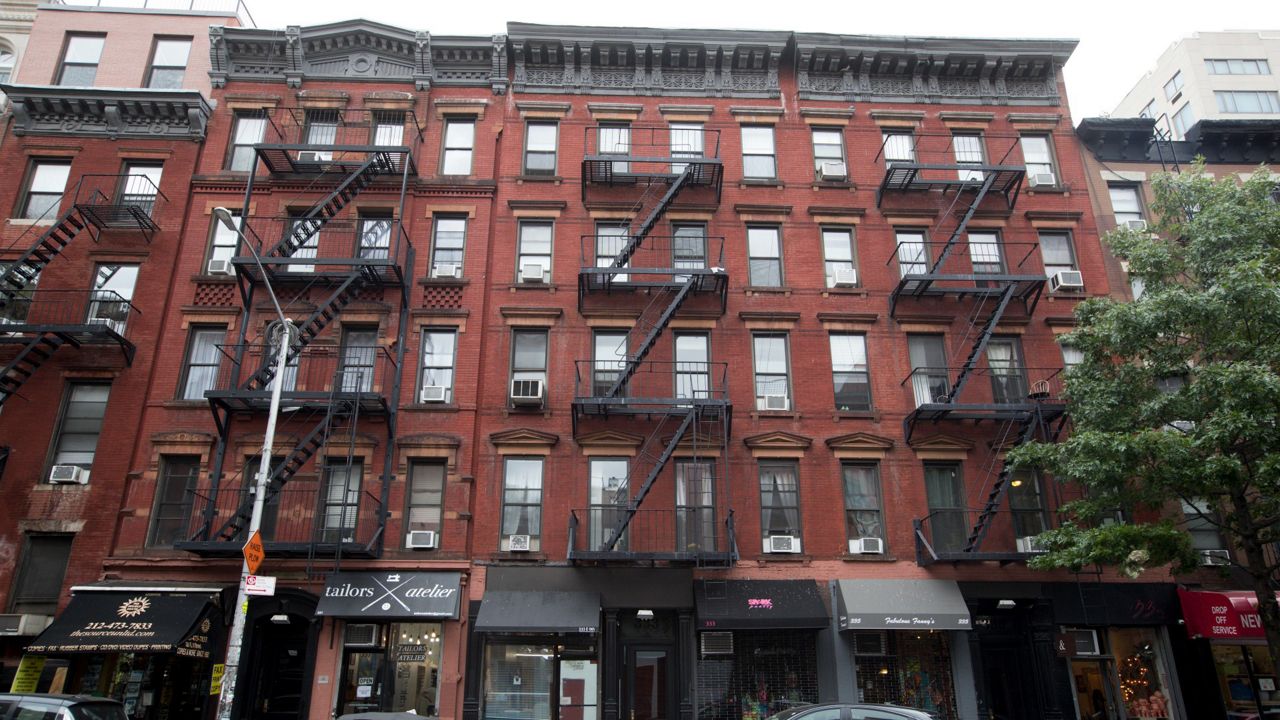Madison Ulczak was ready to upgrade her living space this summer after 18 months of working from home with her boyfriend from their one-bedroom East Village apartment.
They were ready to shell out a bit more than what they were paying for their current apartment, with a budget of around $3,000.
With the higher budget, they were looking for more space and, at the very least, they didn’t want to lose some of the amenities they came to value in their current apartment, such as the washer, dryer and dishwasher.
“It ended up being completely impossible to find anything that would let us do that,” said Ulczak, 27.
As the city has slowly emerged from some of the worst of the COVID-19 pandemic, people have been returning to the five boroughs, and with that the relative deals of the last year have vanished, replaced with a highly competitive and frenzied rental market that many in the real estate industry say is unprecedented.
“I've never seen this before, ever, in all the years that I've been in real estate,” said Ralph Modica, a real estate broker with Compass who works mainly in Williamsburg and Greenpoint.
As of this past August, rent prices on one-bedrooms citywide had spiked 36% from August 2020. By comparison, August year-to-year increases nationally were just under 9%, according to data from Apartment Guide.
“I've never lived in a market like this, where we get so many inquiries,” Modica said. “I would say every rental that we're doing, and particularly in Brooklyn, is a bidding war.”
Ulczak says that all of the units she saw were downgrades from her current apartment, but with rents higher than her allotted budget.
“It just started to feel like we would get to apartments and the landlords just wanted to make up for all of the losses from last year,” she said.
And whenever she did find a rare listing that fit what she was looking for, she came up against very competitive conditions.
“We’d find something and feel so lucky and we would get there maybe like 15 to 20 minutes after the open house started and the broker, whoever was running the open house, would be like, ‘We'll show it to you but it's really off the market. Someone came and they gave us $500 or $1,000 in cash,’ ” Ulczak said.
Ulczak and her boyfriend eventually decided to stay put at the current apartment after losing out on an apartment with a broker asking them to fill in the maximum amount they were willing to pay.
With vaccine distribution picking up this past spring, the losses from 2020 began to shrink. In April, overall rents were down 15% from the previous year and just over 10% two months later. That’s compared to a drop by nearly a third in February, which was the low point after months of double-digit declines in rental prices, according to a study from Apartment Guide.
“There wasn't much inbound [migration] until vaccine adoption kicked in, in the early part of this year,” said Jonathan Miller, president and CEO of Miller Samuel Inc., a real estate appraisal firm that publishes a monthly report on rents in Manhattan, Brooklyn and Queens. “And so there's been this rapid uptick in leasing activity in all the boroughs, or the three boroughs that we cover anyway.”
The amount of inventory is also a major force contributing to this competitive market, according to brokers.
“At this point right now, the inventory is very low,” said Eugene Litvak of Compass, whose realty team mainly serves North Brooklyn and Manhattan. “That's when landlords will pull back on concessions or raise pricing.”
And while experts say that the frenzied activity like bidding wars and long lines at open houses are mostly taking place on the upper half of the market, the competition for rentals can be felt across the board.
“What absolutely floors me is that it's not just in one price classification,” said Leonard Steinberg, a corporate broker at Compass. “We're experiencing this everywhere from a $2,000-a- month rental all the way up to a $50,000-a-month rental.”
And for a city that’s been squeezed for affordable housing years before the pandemic hit, that means it’s feeling harder than ever to find a place to live for low-income residents.
“We're just seeing a correction of sorts from the dip we had during COVID,” said State Sen. Michael Gianaris, whose district includes Northwest Queens. “And it's coming back harder than ever, which means that people struggling to find housing that they can afford is coming back stronger than ever as a problem we have to deal with.”
Brokers say they’re confronting a high level of pre-vetting of tenants in some cases, which only increases the barrier to entry to some apartments.
Modica says that he’s not only checking credit and landlord references but making sure applicants know about and fit exactly what the landlord is looking for before moving forward with a viewing.
Modica said he normally receives two to three applications per listing. But these days, he’s getting up to 10 applications for one unit.
And he’s not alone in this avalanche of business.
“Typically, we do about 400 rentals a year,” Litvak said. “This year, we're already at around 600 or 620.”
This means that not only are landlords able to ask for higher prices, but it means concessions, like a month or two of free rent, seen during the worst of COVID-19, are now off the table.
While prospects might feel bleak for many looking to sign a new lease, experts predict that this may not actually be the peak point for prices.
As of September, the median rental price in Manhattan, Brooklyn and Queens with concessions was $3,216, according to Miller Samuel.
That’s still 5.7% below the level from September 2019 — before the pandemic hit.
“So there's still more growth in rents to come,” Miller said.
